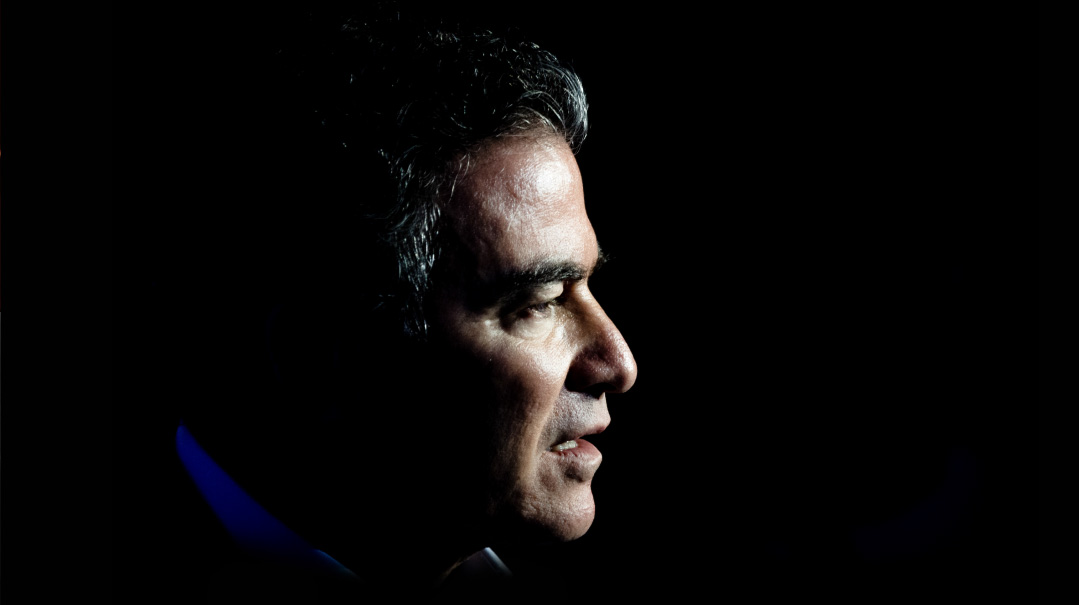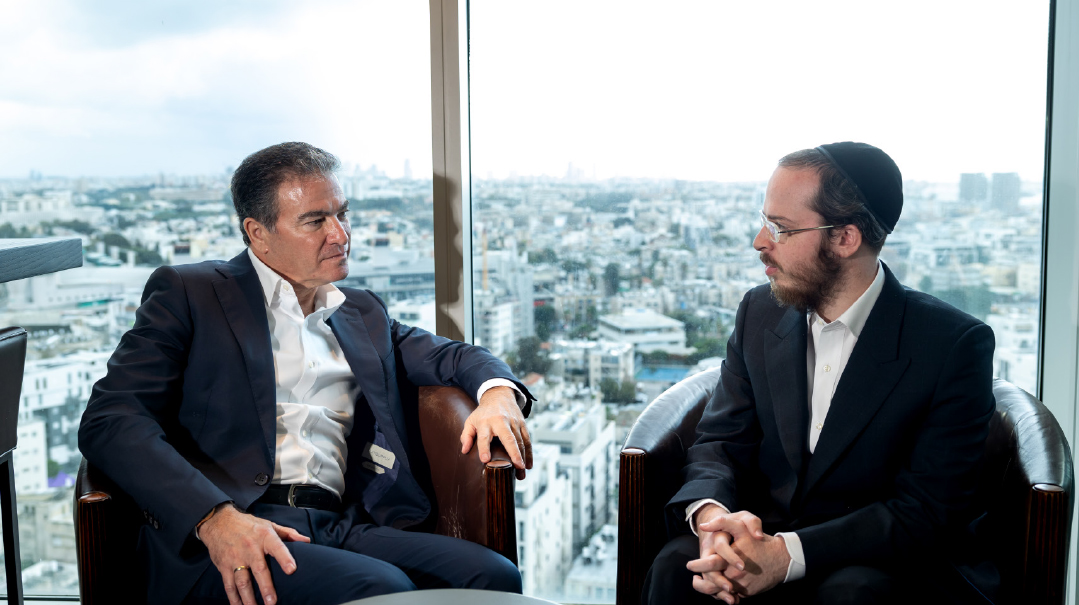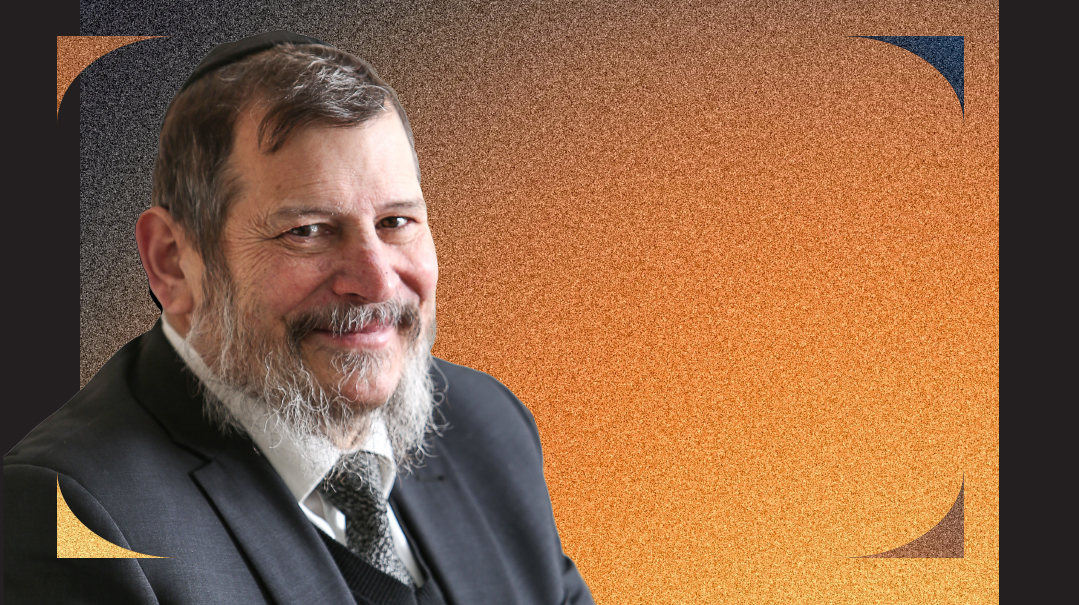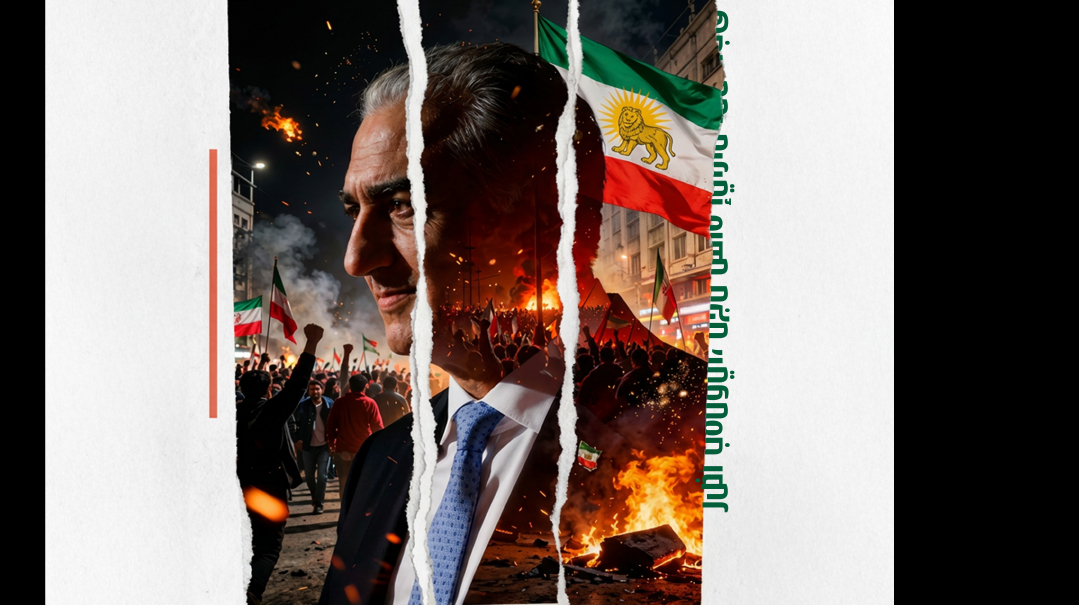Scrambling for Answers
| February 6, 2024Has Yossi Cohen’s legacy — as the derring-do, swashbuckling master spy who’s credited with snatching the Iranian nuclear archives — been irreparably tarnished by the war’s massive security failure?

Photos Kobi Katz, Flash90
Since his retirement in 2021 as director of the Mossad, former spy chief Yossi Cohen — considered a close confidant and possible successor of Binyamin Netanyahu — took the mandatory cooling-off period required for high-ranking former security officials before they enter politics, went into private business, and spent two and a half years avoiding the media. But this past July, as demonstrations against the newly-elected government and its proposed judicial overhaul were tearing the country apart, he stepped out of the shadows and published a cautionary article in Yedioth Aharonot, conveying a message that left no room for commentary.
The former Mossad head warned about an acute and immediate security danger as a result of the rift in the nation. He called for a halt in the judicial reform process on one hand, and the cessation of demonstrations on the other, saying that the advancement of the legislative package was causing an immediate threat to national security. Cohen wrote that even if judicial reform was “right and justified,” it was being done in a way that “endangers the national security resilience of the State of Israel in the immediate timeframe.” He said the perceived rift in the nation would harm security resilience and the country’s security edge.
Two and a half months later, while he was celebrating Simchas Torah with his family at his home in Modiin, Hamas terrorists invaded Israel under cover of heavy rocket fire and carried out the most brutal and heinous massacre in its history.
“Reading the political map, I was petrified that something like this would happen, although no one in their wildest dreams could have imagined the scope and brutality of it,” Yossi Cohen says in a wide-ranging interview with Mishpacha. “But the public chaos that reigned was just inviting an attack.”
While Yossi Cohen kept in the shadows before the war, today he’s again become high-profile, having been spotted in Qatar during that host country’s hostage negotiations. Even though he no longer serves in an official capacity, once the news broke that Hamas was holding kidnapped civilians and soldiers, it was widely reported that Cohen went to Qatar to assist in negotiations for their release.
Cohen denies that he was part of the hostage negotiating team, but acknowledges that — due to his wide network of contacts in the Arab world and a long-invested relationship with Qatar — Netanyahu had appointed Cohen as an emissary “for special missions.”
Some might say that both Cohen’s new diplomatic role and his re-entry into the media minefield is his attempt to survive the inevitable fallout that will hit all the government and security players on “the day after,” when investigations into the colossal security failure that led to the war will abound and everyone will have to give a reckoning.
Like the entire security and political leadership, Yossi Cohen’s glorious Mossad career, too, has been tarnished — part of the dirty undercurrent in which all the major players, from Netanyahu on down, will have to take responsibility for October 7.
Although not long ago he was seen as a successor and confidante of Bibi, he seems to have put some distance between himself and the prime minister over comments about the judicial overhaul package, and has assumed an ambiguous role in the Hostage Family Forum, which is seen by many as the extension of the year-long anti-government protest movement.
While Cohen took over the leadership of the Mossad in 2016, nine years after Hamas came to power in Gaza, he had been an integral part of the system in the defense and intelligence community promoting the notion that Hamas was not interested in war and could be bought off with an infusion of cash — most of it from oil-rich Qatar. Later, as head of the Mossad, Cohen flew to the capital city of Doha and returned with Qatari money to be handed over to Hamas on Netanyahu’s behalf. In a recent interview, he expressed regret for this failed policy.
Has Yossi Cohen’s legacy — as the derring-do, swashbuckling master spy who’s credited with snatching the Iranian nuclear archives among so many other larger-than-life missions — been irreparably tarnished by the war’s massive security failure?
As all factions are feeling their way forward in the post-October 7 environment, waiting for the dust to settle and see where they all land, Cohen hopes not.
No Alternative?
For years, Yossi Cohen — a seventh-generation Yerushalmi and former talmid of Yeshivat Or Etzion and Rav Chaim Drukman a”h who has said that his faith in Am Yisrael, Torat Yisrael, and Eretz Yisrael are the values that have guided and protected him in operations all over the world — held the Mossad position of ketzin isuf, an officer in charge of recruiting, engaging, and handling agents. Smart as a whip, fearless, highly-intuitive, and speaking perfect English, French, and several dialects of Arabic, he rose in the ranks and was involved in many missions to Western Europe, where he lived for several years with his wife and children. During those years, he was known simply as “Y” (until the late 1990s everyone in the organization, even the director of the Mossad, was only known by his initial, but that’s changed in the politically correct 21st century).
In 2008, Cohen was appointed by then-Mossad chief Meir Dagan to tackle the Iranian nuclear program, and that meant a historical shift: cooperating with foreign government agencies once considered enemies — everyone loathed Iran’s support of Hezbollah, and nobody wanted Tehran to have a nuclear bomb.
After Dagan completed his tenure in 2011, Cohen was appointed as a deputy director under new Mossad head Tamir Pardo, but their operation style and vision clashed, and Cohen left the agency to become Netanyahu’s National Security Adviser — and his closest confidant.
Once Pardo’s term expired in 2016, Netanyahu surprised everyone — including Yossi Cohen himself — by appointing Cohen as the new Mossad head. It was a natural choice for the prime minister, who had implicit trust in Cohen and viewed him as his most reliable partner in security consultations.
With his extensive network of connections, it was really no surprise that Yossi Cohen was seen in Qatar — the pro-Hamas country that has become the hostage negotiating link — at the same time as current Mossad chief David Barnea, but he claims he isn’t cutting into anyone else’s territory, even though he spent two decades building up close contacts with that country.
“I’m not formally involved in negotiations,” he says, “but through the Hostage Forum, I’m in intense contact with the families and with released hostages. I offer them whatever support I can, and yes, I also use my connections on the international scene. My Rolodex is still full.”
Despite agenda-driven media reports, Cohen says Israel has the support of foreign leaders, both regarding the hostage crisis and regarding the destruction of Hamas — even many Arab states.
But what about Qatar? Even defense officials have raised the sentiment that Qatar is part of the problem, not the solution, as it is also Hamas’s greatest patron.
Mediation, says Cohen, is a tricky business, and in the murky climate of international politics, when arch-enemies can become fast conditional friends, he’s generous about Qatar.
“Qatar is a fair mediator,” he states. “We don’t have a lot of alternatives. It’s like mediation in the criminal underworld. The mediator is not going to be a great rabbi. He’ll be one of them, who knows how to speak to both sides. And right now, Qatar is the most effective mediator Israel has in the hostage negotiations. We can’t do it without them. If we cut off ties with them, we’ll be left out in the cold.”
During his 15 years as prime minister, Netanyahu — who had to figure out how to tread between Hamas in Gaza, the PA in Judea and Samaria, and Hezbollah on the northern border — gambled that a strong Hamas (but not too strong) would keep the peace and reduce pressure for a Palestinian state. And as his national security advisor, Yossi Cohen was a chief architect.
Allowing payments from Qatar — billions of dollars over more than a decade — was a gamble that a steady flow of money would maintain a cold peace in Gaza. And it wasn’t only Bibi. It was the backbone of what’s become known as “the concept” — a fundamentally flawed assessment by the gamut of Israeli political leaders, military officers, and intelligence officials that Hamas was neither interested in nor capable of a large-scale attack.
For years, Israeli intelligence officers even escorted a Qatari official into Gaza, where he doled out money from suitcases filled with millions of dollars. Even as the Israeli military obtained battle plans for a Hamas invasion over the past year, as analysts and surveillance lookouts observed significant terrorism exercises just over the border in Gaza, the payments continued.
While Hamas has always stated its commitment to eliminating the State of Israel, each payout was a testament to the Israeli government’s view that Hamas was more of a low-level nuisance than a serious threat, a strategy buttressed by repeated intelligence assessments that Hamas was neither interested in nor capable of launching a significant attack inside Israel.
But not everyone in the government was on board. Avigdor Lieberman, months after becoming defense minister in 2016, wrote a secret memo to Netanyahu, detailing Hamas was slowly building its military abilities to attack Israel, and he argued that Israel should strike first. Netanyahu probably read the political map right when he realized that the Israeli public would never go along with a pre-emptive strike. Instead, it was decided that the Qatari government would make millions of dollars in cash payments directly to people in Gaza as part of a cease-fire agreement with Hamas.
Naftali Bennett, who was Israel’s education minister in 2018 when the payments began and later became the defense minister, called the payments “protection money,” yet during his short one-year stint as prime minister in 2021, Qatar was spending roughly $30 million a month in Gaza.
Yossi Cohen, who managed the Qatari file for many years even before he became Mossad chief, had finally begun to question Israel’s policy toward these funds, and after he retired, announced that the Qatari cash had spiraled out of control.
Today it’s no secret that those millions in “humanitarian” aid were siphoned off by Hamas to build its 500-mile-long tunnel network and finance its weapons arsenal and military operations. Just this week it was reported that after almost four months of war, as much as 80 percent of the extensive tunnel network beneath Gaza remains intact.
Loyal Friends
Yossi Cohen might have been erroneously hooked into the failed “concept,” but he definitely called it right when it came to the Abraham Accords and the idea that Arab states really are interested in a practical brokered peace with Israel, jihad ideology aside. Cohen, one of the architects of the Accords, says he’s not worried about all that effort falling apart, even as the UAE, one of the flagship nations of the Abraham Accords, led the UN Security Council session to stop the war.
“At this level of diplomacy,” Cohen explains, “in order for a peace agreement to happen between the State of Israel and other nations, or for ties to be renewed, there has to be a very high level of trust between people. I believe that that level has been reached. I cannot say that it happened only with or because of me, but this thing called a peace agreement comes only after that level of trust is attained. And from that point on, you don’t ‘on-off’ on your peace agreements.
“After you sign a peace treaty, you can punish a bit. You call the ambassador for a rebuke. You recall the ambassador. Almost all of them did it: Egypt, Jordan, Bahrain, Turkey. Even so, you don’t just get out of an existing deal.”
He says you have to read between the lines, figure out what’s behind public posturing. What do they want? What is the meaning of public statements? What are the pressures they are under?
“In the diplomatic universe,” he says, “there are two levels: the real level, and the visible level. The real one is the depth of personal and bilateral relationships that you maintain with a country: economics, security, trade, strategic interests. The visible level is the public condemnations, calls at the UN and declarations about an ‘impending humanitarian catastrophe.’ We need to know how to read it.
“Despite all the condemnations, you don’t see major crises with Egypt and Jordan, Abu Dhabi and Bahrain, and not even with Saudi Arabia, which might be drawing closer to a normalization agreement with us. I also don’t see that the European states have cut off ties with us, even though some of them come out against us in their public statements.”
That’s partially because when it comes to facing terror organizations, Israel is not alone. “We help a large number of nations all over the world fight terror — even countries like Turkey, who don’t have very many nice words for us. All these countries know that what is happening in Gaza is an existential war against terror, not a war between two little states,” Cohen says.
While Saudi Arabia, according to reports, is conditioning a normalization agreement on the advancement of a two-state solution, which is pretty much dead in the water, Morocco, Bahrain, Abu Dhabi, Sudan, Egypt, and Jordan — six Muslim nations — have signed peace agreements without the Palestinian issue being resolved.
At the same time, despite Israelis feeling manipulated by America, Cohen believes strategic ties with the Biden administration are “very good.” And he believes in keeping them that way. “The bottom line is, the State of Israel will always need to work hard to defend itself, but to do that,” he says, “we need America’s support. We need it in its veto votes in the Security Council, on the diplomatic, military, intelligence, and economic fronts. We need the United States. Anyone who thinks — and there are those who do — that we need to criticize the American administration is making a critical mistake.”
He says that Israel has to know how to get along with both parties — Democrats and Republicans. “We can’t take sides in American politics, just like we expect that they not mix in to our democratic politics,” he states. “These are elections of the Israeli nation, and that is how it will stay. Therefore, I really appreciate the American administration, whichever it may be. Look at how many visits we’ve had by Secretary of State Tony Blinken, National Security Advisor Jake Sullivan, the president’s advisor for the Middle East Bret McGurk, CIA director Bill Burns, who was in the past an impressive diplomat. This whole group, whom I know well, is part of the administration that has physically taken a position on our side. The United States will not force us to do things against our will and our best interests. And we, for our part, need to make sure that this process, with any elected American administration, continues onward.”
Despite calls to end the war before the objectives are finished, Cohen says that it was the military pressure that led to the release of the first batch of hostages. “Without it,” he says, “it would not have happened. If we had sat on the fence, like some people told us to do, it would not have happened. When pressure succeeds, they tell you, ‘Take, but there’s something you need to give.’ And on this topic, we have to say that the hard part is still ahead of us.”

It Takes a Thief
But what about Iran? Why, over the years, has there been no attack on the country’s nuclear sites?
“I worked in this arena for many years, to try to delay, in any way possible, Iran’s military nuclear program,” Cohen says. “The work of the Mossad was not only internal surgical operations, but also secret diplomatic actions on a broad scale — which led us to the capture of the Iranian nuclear archives.”
The capture of the nuclear archive in the summer of 2018, which became a symbol of the Israeli war against a nuclear Iran, is still a source of pride and satisfaction. “The whole world signed onto this great lie called JCPOA, which supposedly ensures that Iran’s nuclear program will be exclusively peaceful, and therefore sanctions against Iran will be lifted. I knew we needed to do something drastic, and so I led the archive operation because I believed that something bad was happening under our noses, and we hadn’t yet proven it well enough to the world.”
In an operation that defied imagination, tens of thousands of documents were stolen from an Iranian installation and brought to Israel, proving to world leaders Iran’s great lie.
And it will go down in history as Yossi Cohen’s crowning achievement. In the words of former US Secretary of State Mike Pompeo following the Israeli heist of Iran’s secret nuclear archives, the Mossad “has redefined daring and boldness.”
In 2016, when Mossad operatives learned of Iranian storage houses filled with material about its nuclear project, Cohen decided to make the stash the Mossad’s next target. The decision seemed delusional — only a highly developed imagination could fathom a plan to penetrate deep into an enemy country, empty a huge warehouse, and truck out the merchandise. But the new Mossad chief saw the operation as a question of Israel’s survival.
The agency expended extensive resources locating the site where the secret files were being held and tracking those files when they were moved to an abandoned warehouse outside Tehran. This was Iran’s nuclear secret treasure: drawings, blueprints, plans, and timetables on how to produce nuclear weapons and warheads. A network of operatives and infiltrators with bogus identities, passports, and cover stories who managed to neutralize all electronic surveillance devices, spent the night snatching the store of documents that were kept in 32 ironclad safes, using special torches that reached 3,600 degrees to slice into those safes. According to foreign reports, they used Iranian smugglers to get the truckloads of files across the border.
While many former Mossad officials believed in sticking to the old sealed-lips policy and would have preferred the heist only be shared confidentially with Israel’s intelligence allies, Cohen pushed for going public with the operation. A public announcement, he predicted, would wield significant diplomatic impact.
Cohen’s instincts were on the mark. Netanyahu’s dramatic, internationally broadcast public revelation of the files and the concealed sites containing radioactive material and a nuclear weapons development facility had real-time policy implications. The findings served as a platform for US president Donald Trump to withdraw from the 2015 nuclear deal Barack Obama had reached with Iran and instead launch his maximum-pressure campaign on the Islamic Republic. Even skeptics from European countries who initially preferred to go easy on Iran were overwhelmed by the breadth of the data the Mossad procured and revised many of their own policies on Iran’s nuclear program.
“The bottom line is, Iran does not have military nuclear capability right now,” Cohen explains. “It is progressing in the arena of enrichment, where it has long gained control. “But we’ve planted a few more spokes in the wheels. I don’t know exactly what’s happening now, I’m not in the inner loop, but during my tenure, preventing Iran from going nuclear was primary — if it had reached nuclear military capability, we’d have to bring it down.”
Lines of Defense
Yossi Cohen can go back to that heady feeling of doing something huge for the security of the State of Israel, especially these days when all eyes are upon the military and security echelons for some kind of rational explanation as to their catastrophic failure.
“I believe that the real story will shake us all, including the military, diplomatic, and intelligence systems and networks. But it will also make us more alert and aware about who we are and what’s happening to us. It underscored for me this feeling: You see an enemy who says he wants to kill you? So assume that he wants to kill you and that he’s not only capable but also highly motivated to do so.”
How did such a failure happen? Yossi Cohen says he has no good answers, and no one else will either. “How does a country that has all that we have — cyber, F35, submarines, missiles, drones, how did it happen to us? How did the F-35 not prevail over the RPG on October 7? One factor is surprise. When you’re taken by surprise, you lose a lot of your focus about your primary mission. The primary mission here was the two defense lines that collapsed.
“The first defense line was the intelligence line. It was supposed to provide warnings, which are very pinpointed. When I look to eliminate terrorists who are trying to harm Israel embassies, wherever it might be in the world, let’s say even a lone terrorist, I need to know who he is, when and where he is and then I can apprehend him. If I don’t know that, what do I do? I assume that there are such people, and then I protect the Israeli embassies and installations.
“The assumption that there are enemies in your backyard is the second line of defense. It’s possible that intelligence won’t see. So, do we then say, ‘there are probably no terrorists?’ On the contrary. Assume that there are, and fortify your second line of defense. And here, on Simchat Torah, that second line also collapsed. Both lines of defense collapsed together within a few minutes. If you’re surprised, or not alert enough, or if you don’t assume that the enemy is on your heels — then you fall.”
Still, verified reports about an imminent attack were coming in for months. So why the surprise? Why the false assumptions?
At this point, Yossi Cohen, along with the entire military and security establishment, are themselves groping for answers.
If he can extricate himself from the political gallows, it’s no secret that he sees himself competing in the future for leadership of the right — and of the state.
But first will come a postwar reckoning for Israel’s entire political and security establishment — including the former spy chief. Yossi Cohen, though, isn’t looking to avoid scrutiny.
“There’s one thing I can tell you right now: Taking responsibility is not a luxury, it’s leadership.”
(Originally featured in Mishpacha, Issue 998)
Oops! We could not locate your form.







